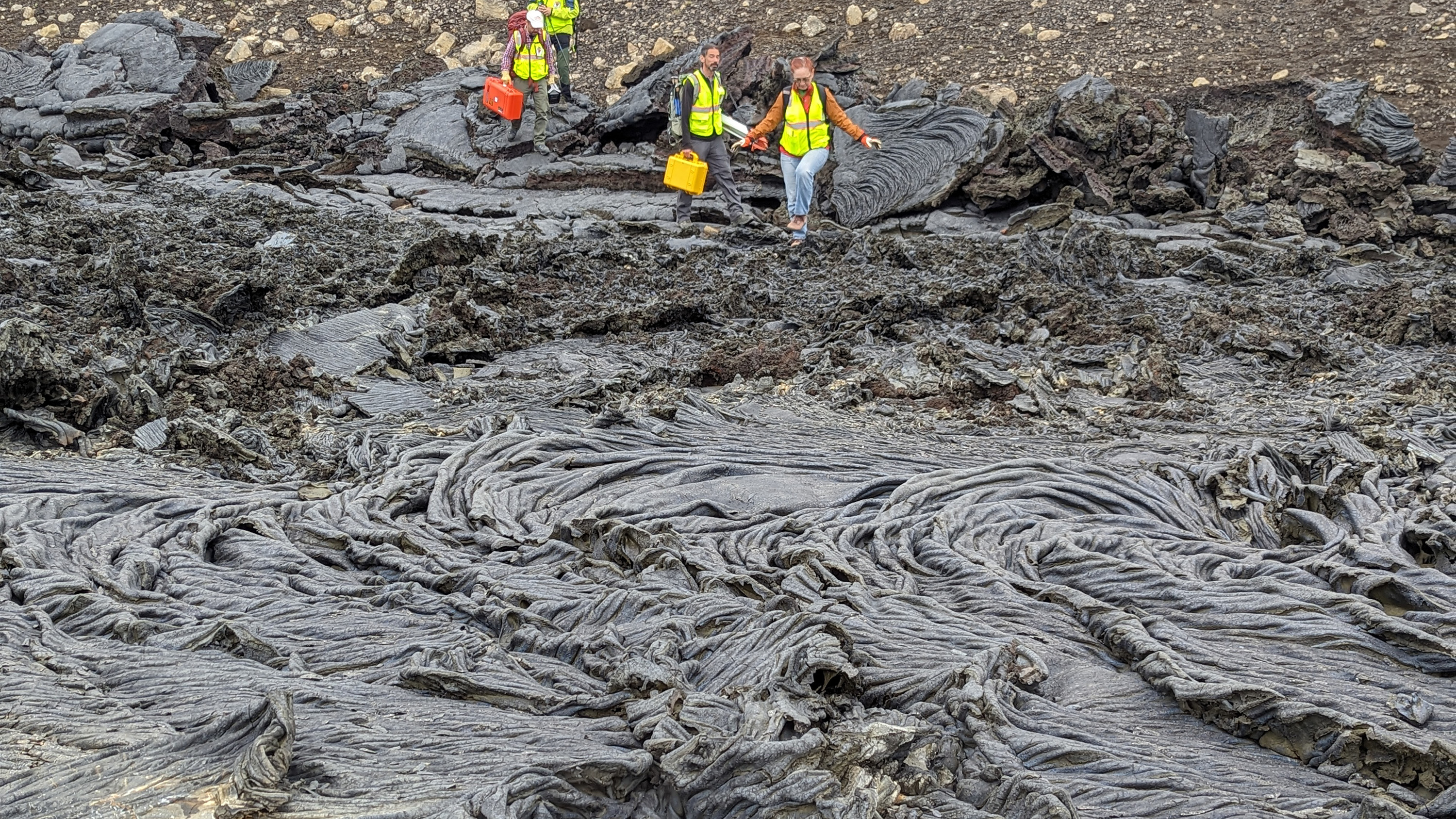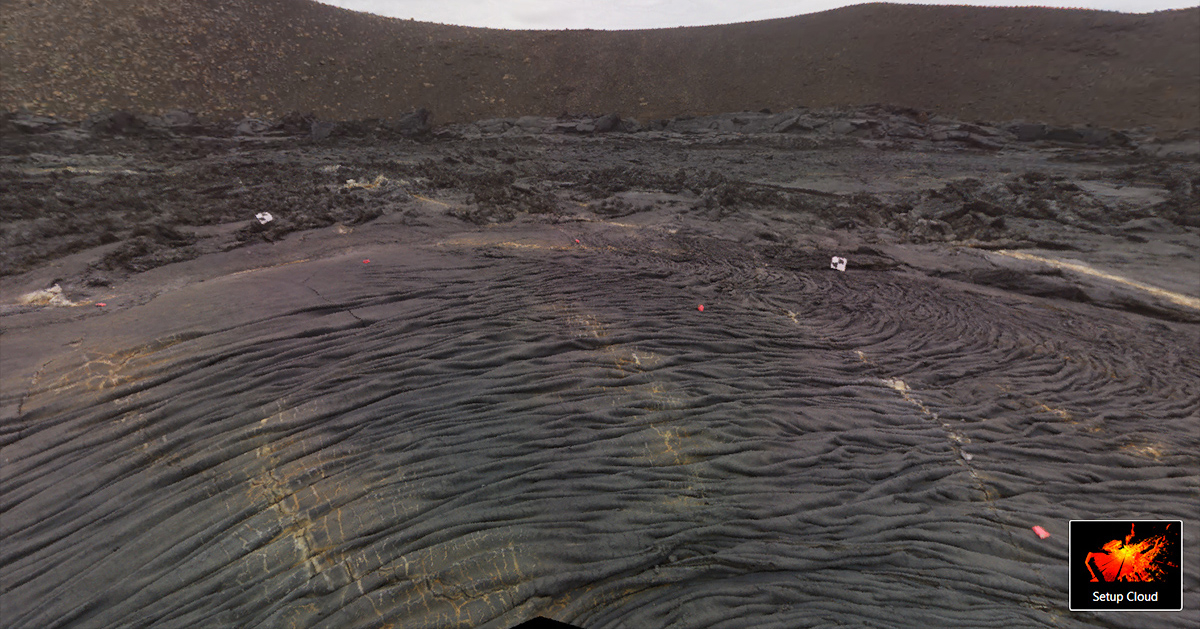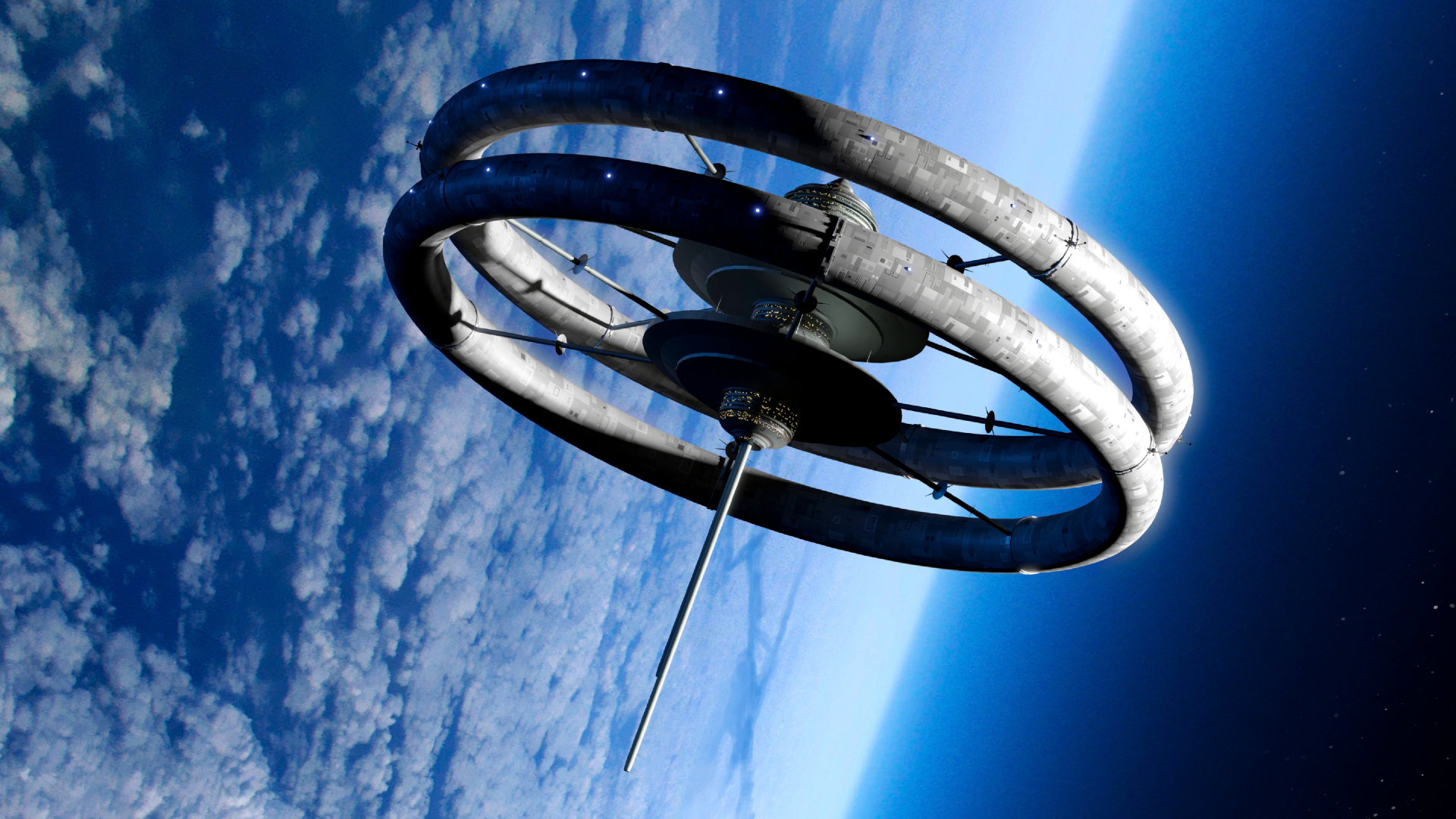NASA's delayed VERITAS Venus mission tests key technology in Iceland (photos)
The field campaigns will help refine the VERITAS mission, which is expected to fly no earlier than 2031.

While NASA's VERITAS Venus mission continues to be on hold, team members have been perfecting technologies on Earth in places that resemble the hellish planet.
Early last month, one such field campaign took the mission's science team to a barren and rocky region in Iceland. There, they studied rocks and surfaces near an active volcano named Askja.
Such volcanic areas are being used as analogs of Venus to understand the different types of eruptions that may occur on its surface, and to test out various technologies and techniques to prepare for the VERITAS (or Venus Emissivity, Radio Science, InSAR, Topography and Spectroscopy) mission, which is not expected to launch sooner than 2031.
Related: Here's every successful Venus mission humanity has ever launched
The VERITAS science team — which is being supported by a shoestring budget of $1.5 million until 2028, after NASA pulled the mission's funding earlier this year and disbanded its entire engineering wing — collected samples of young rocks and recent lava flows near the Askja volcano that will be analyzed in a lab, according to a NASA statement.
"Iceland is a volcanic country that sits atop a hot plume. Venus is a volcanic planet with plentiful geological evidence for active plumes," Suzanne Smrekar, senior research scientist at NASA's Jet Propulsion Laboratory (JPL) in California and the VERITAS principal investigator, said in the same statement. "Its geological similarities make Iceland an excellent place to study Venus on Earth, helping the science team prepare for Venus."
During their campaign, the team also visited Fagradalsfjall in southwestern Iceland to collect more samples for further analysis, while an aircraft circling above captured radar images of the same area.
Breaking space news, the latest updates on rocket launches, skywatching events and more!
"We collected information in the field to ground-truth the radar data that we will use to inform the science that VERITAS will do at Venus," Daniel Nunes, the VERITAS deputy project scientist at JPL, said in the same statement.
Ultimately, these efforts will help in refining the algorithms onboard VERITAS to better identify changes on the surface of Venus since NASA's Magellan spacecraft circled the planet over 30 years ago, scientists say.
In March, a new analysis of Magellan's data showed changes of a vent near one of the planet's largest volcanoes named Maat Mons, raising hopes about the long-held suspicion that Venus is volcanically active.
While the recent discovery has helped spur interest in revisiting the planet, delays to the VERITAS mission, which was supposed to be the first Venus mission after Magellan and provide fundamental information about the planet and its surface, have put at least some of those potential discoveries on hold. NASA continues developing another Venus mission, called DAVINCI, which is scheduled to launch in 2029.

Sharmila Kuthunur is an independent space journalist based in Bengaluru, India. Her work has also appeared in Scientific American, Science, Astronomy and Live Science, among other publications. She holds a master's degree in journalism from Northeastern University in Boston.

